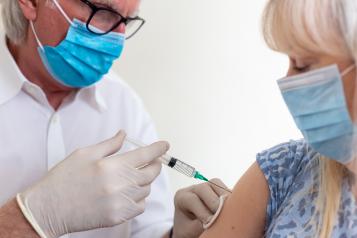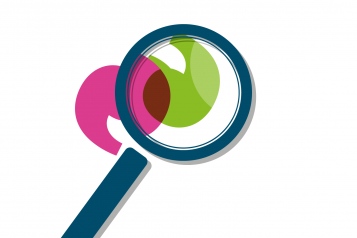Health data and the fight against coronavirus

Common ways we share information about ourselves online
- Social Media
- Video calls (this has become incredibly popular during the pandemic)
- Gaming
- Cookies (when you visit a website, cookies gather information about you and use this to decide what advertising you might see)
Top tips for maintaining your privacy and staying safe online
Once you’ve shared data, you’ve lost control of it. There are strong laws to protect it, but you’ve lost control and it’s there forever. So, think before you share. On social media, be kind, don’t respond in anger. There are no real safe spaces on the internet, the information is still out there.
- Keep your software up-to-date, this is key for dealing with security issues.
- Be careful when clicking links in e-mails. Is this e-mail really from who it says it is. Reply to them through their own web-site, not through links in the e-mail. Trust your instincts.
- Know what your children are up to on-line and use parental controls. Find out more from NSPCC guides
- Look out for privacy notices, and what standards the services you are using are adhering to, such as ISO 27001 notices, CyberEssentials, GCloud and other privacy notices and information leaflets.
How is our personal health data used?
- When we use health services, our doctor or nurse will ask us questions and will record our answers along with any test results.
- This data then gets processed and can help healthcare systems reflect on their services as they can do audits and evaluations.
- This data can also be used in research to find better treatments, and in health innovation.
- The collection and processing of the data gathered on the patient is all about delivering back to improve the care patients receive.
How is our health data shared differently during a pandemic?
There is a duty of confidence for health data. This means that if a doctor, nurse or health worker asks for your data, they can only share it with your consent.
However, the NHS Act 2006 and the Health Service Control of Patient Information Regulations 2002 allow this duty of confidence to be set aside in certain circumstances, including during a pandemic. So, in March 2020 there was a requirement to share confidential data to help manage the crisis, and to understand the disease.
There are good reasons why consent can’t be obtained during the crisis; people are isolating, people have died. But removing this duty of confidence is very rare.
Accessing health services remotely and how that affects our privacy
Access to healthcare has also changed during this time. There are many more phone-based consultations and on-line consultations.
In a video consultation, our data is shared with those involved in the appointment. The software the NHS uses needs to adhere to security standards. Within the NHS, patient data should not be discussed over Zoom. Microsoft Teams is considered to have a better access control infrastructure (it is more secure).
Q. Will my appointment be recorded?
A. No, not without your consent. The clinician should always let you know if your conversation is being recorded, but you can always ask if you have concerns about this.
Q. If the call was to get cut off, what happens?
A. It’s worth raising this at the start of the appointment if you’re concerned about this.
Q. If I opt out of data sharing do I get a worse service?
A. Currently, we can’t opt out because of the pandemic, but in general we can opt out of our data being shared for research without that impacting on our patient record or on the care we receive.
Q. Do you end up getting seen quicker if you book on-line using their systems?
A. Hopefully it makes being seen quicker for everyone.


